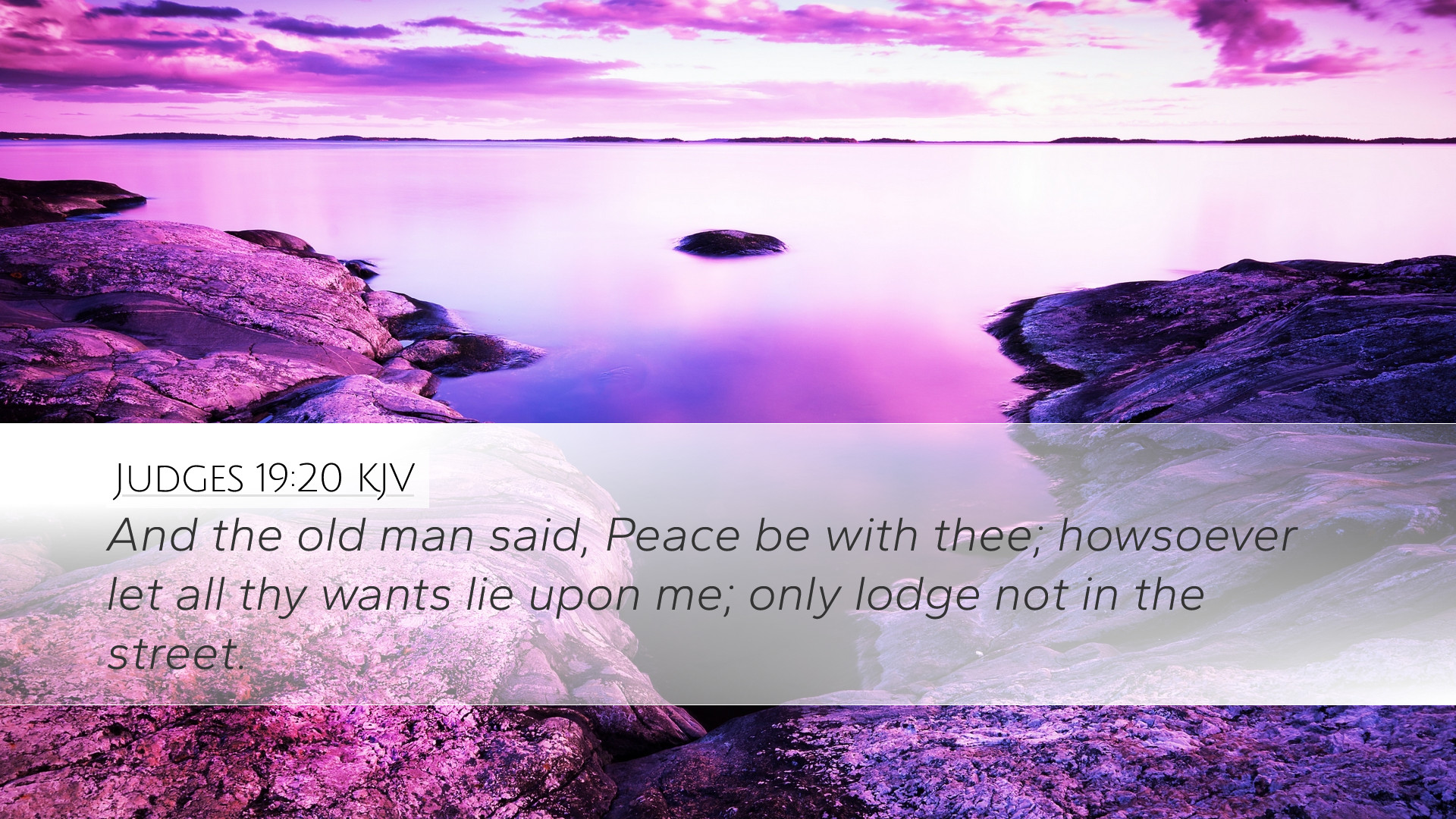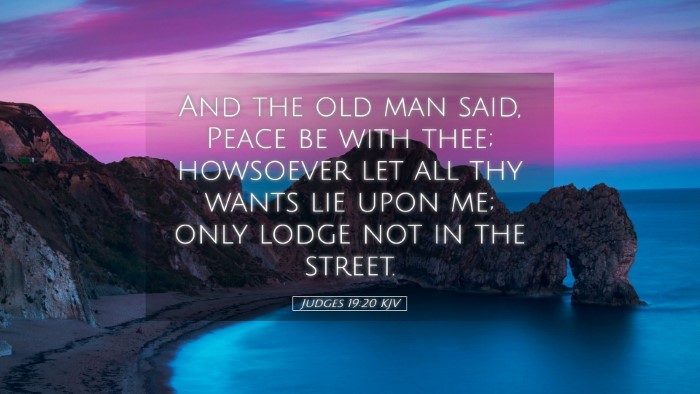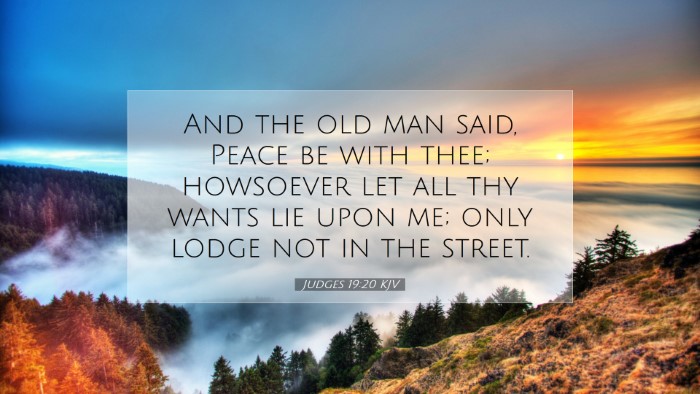Commentary on Judges 19:20
Judges 19:20 states: "And the old man said, Peace be with thee; howsoever let all thy wants lie upon me; only lodge not in the street." This verse captures a moment of hospitality set against the backdrop of chaos, instability, and moral decline in Israel.
Contextual Analysis
This passage is situated in a tumultuous period in Israel's history, marked by a lack of centralized governance and moral confusion. The events in Judges unveil how the Israelites often cyclical fell into sin, which led to oppression and desperation. The Levite and his concubine find themselves in a vulnerable position traveling during a dangerous time.
Historical Background
-
Societal Decay:
During the time of the Judges, Israel experienced cycles of faithfulness followed by idolatry, which resulted in God’s judgment leading to oppression. The Levite’s journey is symbolic of the broader societal decay.
-
Hospitality Themes:
Hospitality was foundational in Israelite culture, emphasizing safety and refuge. The old man's offer sets a contrast to the violence and lawlessness that permeated the period.
Theological Insights
This verse not only reflects a cultural norm but also carries deeper theological implications regarding God's providence and protection. The following insights derive from traditional commentaries:
Matthew Henry's Reflection
Henry emphasizes the importance of hospitality as a virtue and sees the old man's greeting as a representation of divine peace. The phrase “Peace be with thee” is more than a casual greeting; it invokes the divine favor and safety that the Israelites yearned for amid societal upheaval. Henry notes that the old man acts as a mediator, extending his own safety to the travelers by inviting them into his home, symbolizing God’s protective embrace.
Albert Barnes' Exegesis
Barnes highlights the urgency and necessity of seeking shelter. The old man’s insistence on not allowing the travelers to lodge in the street conveys the perilous situation that characterized the times. He points out that this verse reveals the stark reality of life in Israel, where hospitality becomes a matter of protection against potential harm. The old man's willingness to assume responsibility indicates a selfless love reflective of God’s care for His people.
Adam Clarke's Analysis
Clarke provides a linguistical and cultural analysis of the text, suggesting that the hospitality extended is not only an act of kindness but also an expectation of the culture. He observes that the request to stay with him is rooted in the Levite's understanding of the dangers of the street—both moral and physical. Clarke argues that this verse exemplifies a microcosm of the larger moral crisis facing Israel, where the righteous are compelled to seek shelter among the faithful.
Moral Implications
Judges 19:20 challenges contemporary readers and leaders to reflect on the principles of hospitality. In a modern context, the hospitality illustrated raises questions about our responsibility to the vulnerable and marginalized in society.
Ethical Reflections
-
Commitment to Safety:
Church leaders must grapple with their role in creating safe environments for those in need. The old man’s instinct to protect resonates with current calls for safeguarding in ministry.
-
Embodiment of Peace:
The invocation of peace in the old man's greeting serves as a reminder of the Church's mission to be ambassadors of God's peace amidst social turmoil.
Conclusion
Judges 19:20 presents a poignant moment that illustrates the virtues of hospitality against a backdrop of moral decay. By examining insights from historic commentaries, we gain a multi-dimensional understanding of the text that underscores the responsibility toward both offering and seeking refuge. Faith communities today are called to reflect on these themes, ensuring that they embody the peace and safety that are so fundamental to their calling.


